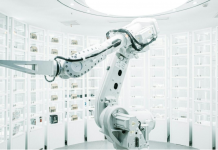Protecting people, assets and profit
“Profits are to some extent the return for successful risk-taking,” observes Julian Hought, Managing Director of HFL Consulting. “This means that those in charge must understand the risks and manage them to maximise the return for shareholders.”
“In the hazardous process industries, loss of containment events pose one of the biggest business risks and so leaders have to understand the hazards and risks to people, the environment and the business, and the short and long-term financial implications if things go wrong.”
“Good leadership is about involving everyone. Leaders should listen to those around them, encourage them to report problems and allow them to provide input to management on operational and safety management issues.”
HFL Consulting believes firmly in this mantra for businesses of all sizes across the process industries, and its’ training programmes have now reached more than 3,000 executives and senior managers in nearly 300 companies. But the team doesn’t just focus on training; they have written safety reports for more than 25% of upper tier sites under the Control of Major Accident Hazards (COMAH) Regulations and have provided engineering consultancy and management systems support to most of them. In fact, they provide COMAH support to more companies than anyone else in the UK.
“We provide a blend of leadership, management, consulting, engineering and training services to businesses of all sizes,” explains Julian. “Helping them to improve safety and efficiency in design, operation, maintenance, modification and decommissioning of complex hazardous facilities.”
“Our range of services has been designed to help businesses develop people, plant and management processes to drive sustainable improvements in safety, productivity and profitability.”
HFL Consulting works with the oil and gas, chemicals, polymer, pharmaceutical, healthcare, waste and allied industries as well as public sector organisations, providing training, guidance and technical support.
Julian himself has been at the helm of the company for 18 years. “I’m an engineer by discipline, I went on to gain a PhD in Advanced Process Control and during my career I’ve been actively involved in the management of engineering projects, maintenance and compliance activities on high hazard sites. I’m using this knowledge now to assist our clients in addressing the challenges they face.”
Operating within a Quality Management System, certified to the requirements of ISO 9001:2015, HFL Consulting has been awarded a number of industry accolades in recent years. They are the previous recipients of the Chemical Industries Association (CIA) Chemical Industry Service Provider of the Year Award, the Cogent Skills Provider of the Year Award and the Chemicals Northwest Business Improvement Partner Award.
“What we do goes far beyond a box-ticking exercise. For example, in our work on process safety management systems, we employ continuous improvement principles to maximise engagement and bring about lasting changes on client sites.”
Collaboration and knowledge sharing
HFL Consulting has also been actively involved with the wider business community, working with industry trade bodies and cluster groups, providing training, seminars and benchmarking expertise to promote knowledge sharing.
The company, working with the CIA, embarked on the first ever process safety management benchmarking programme for the UK chemical industry. This looked at asset integrity management on 12 COMAH sites and was closely followed by a similar study covering the application of human factors.
“The PSM programme revealed some encouraging results but it also highlighted some leadership and management issues,” explains Julian. “Companies were allowing themselves to be regulated into action rather than setting their own programmes of work.”
“Aligning process safety policies with business objectives can bring about wider benefits. Some of the tools and techniques are transferable and can help improve quality and reliability too – safe and reliable operations are good for business.”
“A good leader will have a vision and be able to get this across but will respect the views of others and learn from them,” adds Julian.
Developing competence and capability in the workplace
These are challenging times for the industry, with many businesses downsizing and needing to get more from the people they have. The need to train and retrain is becoming even more important. Many businesses are engaging contractors to fulfil aspects of their work, which adds additional complexities around the need for management skills and the role of the intelligent customer.
“In the high hazard industries, competence assurance has to be linked to the major accident hazards, risk assessments and critical tasks, making sure that those involved receive the information and instruction they need to complete them safely.”
“Developing and maintaining competency is a big undertaking and employees are assets that need care, so employers should accept the need for ongoing investment as the people, processes and technology change over time.”
HFL Consulting’s work is increasingly becoming focused on developing people, but with a difference. The company takes the view that adults are able and willing to take responsibility for their own learning and so with the development of the company’s new Virtual Learning Environment (VLE), they are introducing blended learning options, where some of the lesson materials are accessed online to support more formal instructor led training. This allows the basics to be covered through tailored self-study so that participants can come together to build on what they know through lectures, workshops and practical exercises.
Learners enrolled on the company’s own vocational training courses for Continuous Improvement in Process Safety are now benefiting from this approach. The CIProS™ qualifications include Certificates, Diplomas and Awards at Levels 3 and 7, with a Level 7 Award for Corporate Governance of Process Safety, to support everyone from supervisors to board members.
Mixing online digital material, with traditional classroom methods, delivers programmes that are far more flexible, cost-effective and better suited to learners in the workplace. This approach makes the most of the face to face time participants have with their tutors, resulting in employees with the knowledge, skills, experience and attitudes to deliver what is needed.
“Our trainers have industry experience, as well as training qualifications,” explains Julian, “So they understand the challenges participants face and are able to deliver training using real-world examples to enhance the learning experience. People learn much better when abstract concepts are illustrated in this way.”
“We adopt similar principles in our own workplace. Our Competence Management System has been put together by subject matter experts with an understanding of different learning styles. And our internal training and development programmes are subjected to regular independent audit and management review.”
Building systems and processes to maintain standards
“Our clients have asked us to look at a whole range of issues over the years. The way we work – developing systems and procedures based on standards and guidance and facilitating teams so that they own the solutions and action plans – helps them to make sustainable improvements.”
“But we know that some of the businesses we work with are really stretched for resources, so we provide practical hands-on support as well. We make our consultants and engineers available to work within client site teams, when needed.”
“In uncertain times it is all the more important for businesses to maintain a focus on process safety leadership. With concerns about increased bureaucracy, disruption to supply chains and reports of stockpiling supplies in fear of shortage, leaders can’t afford to get distracted and take their eyes off the ball when it comes to process safety.”










